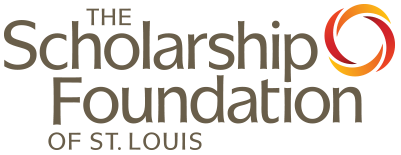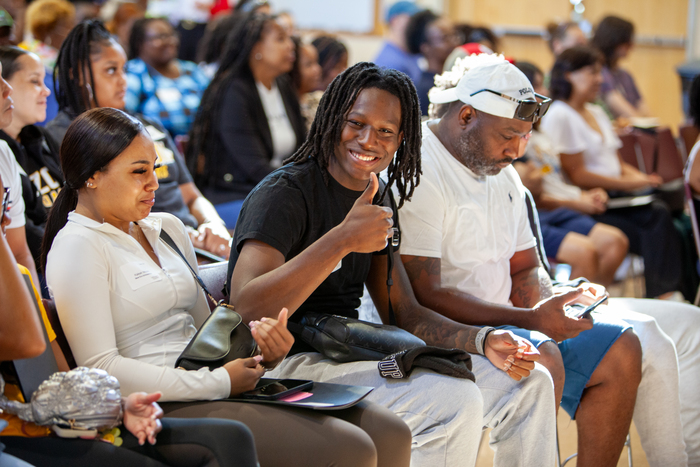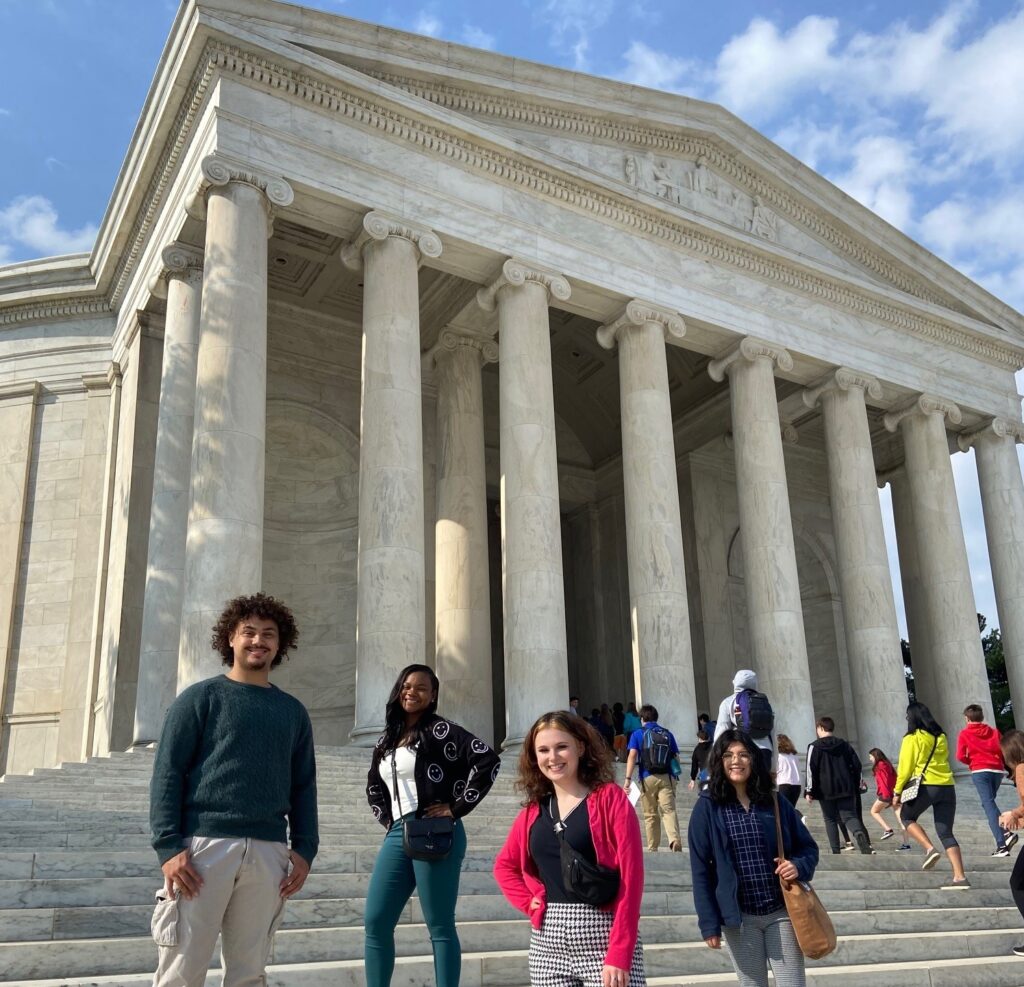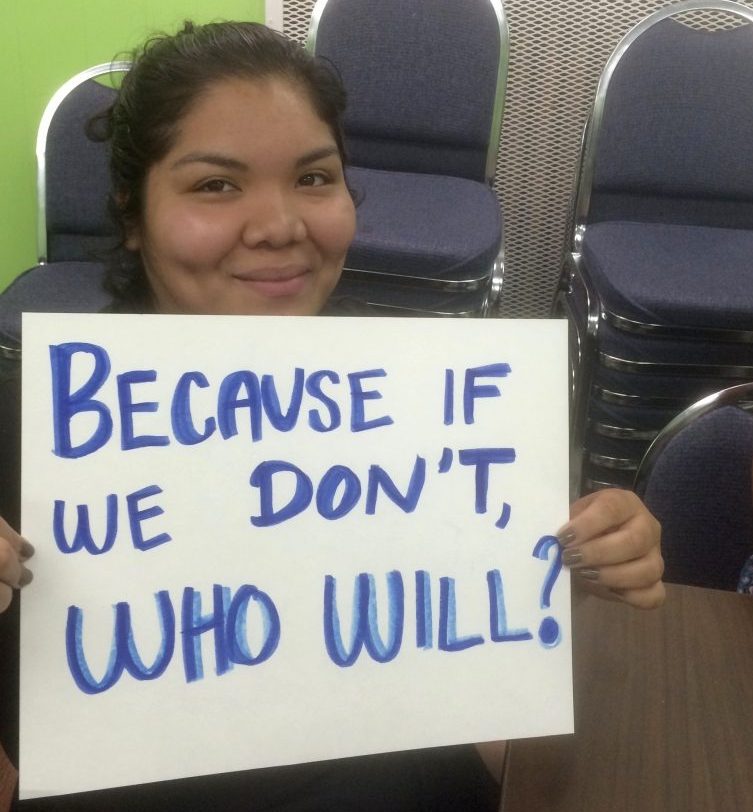 They say that in time of extremes or crisis, we do not see “new sides” of ourselves, but rather we find that our essential qualities become even more evident. This may be true of organizations as well.
They say that in time of extremes or crisis, we do not see “new sides” of ourselves, but rather we find that our essential qualities become even more evident. This may be true of organizations as well.
For 100 years, and counting, The Scholarship Foundation of St. Louis is a community of learners. Recent months have proven this, as we have quickly learned new ways of working and our programs have adapted to a world in which deadlines are shifting targets. So much is unknown about what will happen next week, not to mention next academic year.
We are in the midst, doing what we do. All of us have experienced vivid reminders of the importance of relationships, of human connection. In real time, interdisciplinary and intergenerational, we are working together and learning important lessons.
- History
As staff and board leadership, we’ve studied St. Louis in the flu of 1918-19, learning to take our direction on public health from science and medicine, not politics and business. In that example and in our own founding documents of the decades to follow, we’ve seen that principled leadership requires taking a stand, even and especially when it is not a popular one. Staff members and community partners are reading and discussing Walter Johnson’s just-published The Broken Heart of America: St. Louis and the Violent History of the United States, learning once again to question what we thought we knew about the racial and economic past of this region.
- Political Science and Economics
We have five essential research projects underway, each conducted by paid student interns (thanks to programs supported by Deaconess Foundation and Equifax) or a much beloved volunteer*.
-
- CAREs Act Funding Allocation and Emergency Aid to Students: Institutions were given a sum of money through the CAREs Act, and a portion of those funds must go directly into the hands of students for emergency aid under guidelines broadly described by Congress and subsequently interpreted by the U.S. Department of Education. It is imperative to The Foundation’s advising work to understand how students can access those funds at their colleges.
- College Financial Solvency Index: How is the solvency of colleges measured and what measurements are most sensitive to the needs and priorities of low-income students? This project will result in a recommended index for use as The Scholarship Foundation evaluates the position of the individual schools Scholarship Foundation students are planning to attend. Understanding financial solvency is important to The Scholarship Foundation’s advising, awarding, and advocacy efforts immediately and long-term, including guidance given to the public in especially challenging times.
- Due Diligence Database: With campus re-openings highly uncertain, an active, constantly updated database on key variables affecting students’ awards and fall enrollment is critical. Variables are tracked for 113 colleges our students attend: cost of attendance, tuition and fees, timing of financial aid awards, status of fall semester, financial solvency, and news on planned pedagogy.
- Grading and Coursework Policy Tracking: Many challenges in the grading policies and awarding of college credit resulted from campus closures in the spring. Policies regarding course withdrawal, pass/fails, and credits that could not be earned online affect graduation dates and student plans. Tracking policies at each institution and analyzing trends will assist in current advising efforts as well as institutional advocacy.
- State Budget Tracking: States continue to respond to the health and economic crisis while attempting to balance budgets. Viability of higher education is at stake in Missouri and surrounding states. The data from surrounding states will be useful in advocacy efforts in Missouri, in assisting our students who attend schools in adjacent states, and in advocacy efforts on the broader topic of public higher education.
- Psychology
In the months before COVID-19 made itself known in this region, we began efforts to raise funds to support trauma training for our staff, including not just increased knowledge of the effects of present and past trauma on our students but addressing vicarious trauma that staff experience. That effort could not have been better timed, from the standpoint of needs assessment, goal-setting, and design. While much of the training and support is deferred until staff can meet in person as a team, we have received assessment from an independent consultant, attended a series of trainings with our rootEd Alliance partners, and hosted an online self-care workshop for our staff. With support of knowledgeable mental health practitioners, we are now planning ongoing coaching and individual support that may become available to Scholarship Foundation staff in 2021. Thinking ahead is helping all of us make it through**.
We are collectively learning in real time at The Scholarship Foundation of St. Louis. With our students, we’re turning to the lessons this pandemic and the economic aftermath teach us right here and right now. There is no doubt that the course catalogue and syllabus content of The Scholarship Foundation of St. Louis will continue to evolve as we adjust to what will be a new era in education and public policy affecting our students. Learning, like many other skills, is a practice rather than an event. Fortunately, we have 100 years (and counting) of organizational practice on which to build.
– Faith Sandler
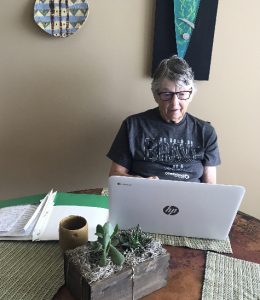 *Sending special thanks to my mother, Judy Sandler. I’ve not seen her since March 11. Quarantined in Florida, she’s volunteered to build and continuously update the “Due Diligence Database” referenced above.
*Sending special thanks to my mother, Judy Sandler. I’ve not seen her since March 11. Quarantined in Florida, she’s volunteered to build and continuously update the “Due Diligence Database” referenced above.
**For those preferring reflection on the past to thinking about the future, be sure to see our just published 2019 Annual Report for all the detail.
